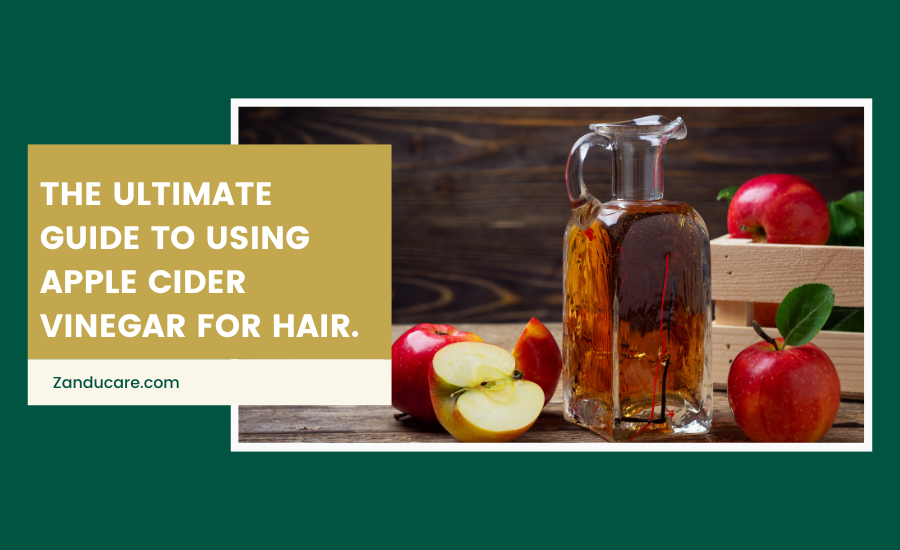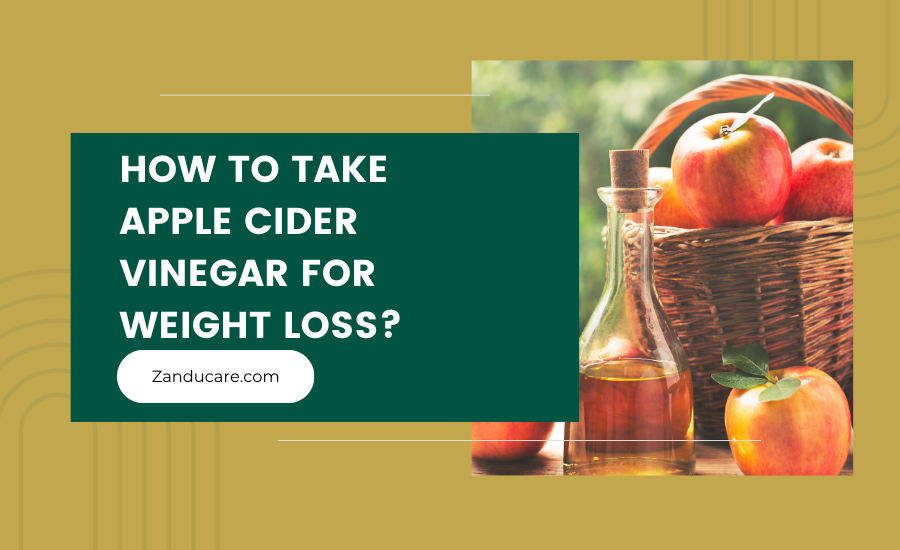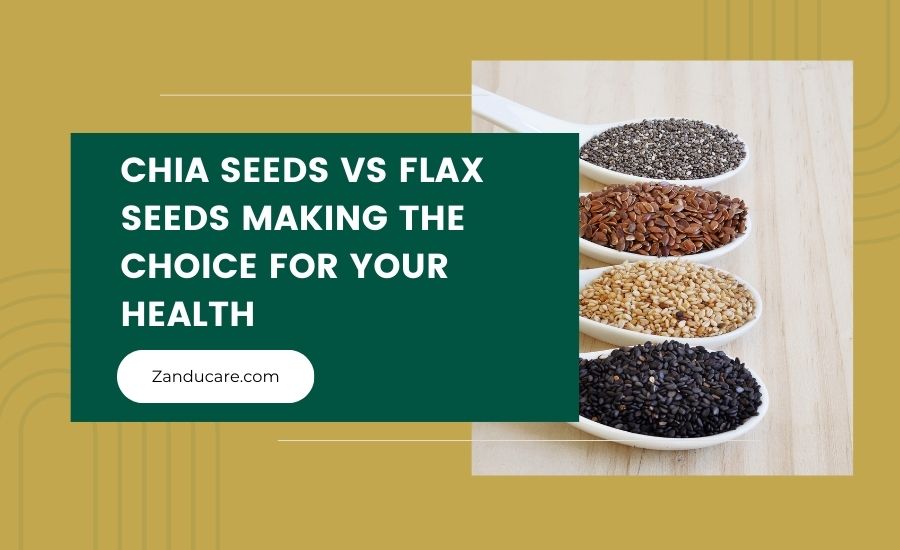
The Ultimate Guide to Using Apple Cider Vinegar for Hair
Is apple cider vinegar good for hair? This common home item has become more well-known as a safe and efficient remedy for various hair issues in recent years. Apple cider vinegar is a must-have in your hair care regimen because of its many advantages, from encouraging hair growth to enhancing scalp health.
Here, we will examine the science underlying apple cider vinegar's effects on hair and send you detailed instructions on how to apply it to address various hair issues. So, let's get started and learn how apple cider vinegar can help you get healthy, glossy hair.
|
Did You Know
|
What is Apple Cider Vinegar?
ACV, or apple cider vinegar, is a kind of vinegar produced by fermenting apple juice. It has been used for ages as a home cure for a variety of ailments related to health and appearance. Fermentation is a common method of enhancing general health since it yields probiotics and helpful enzymes.

How does Apple Cider Vinegar benefits for hair?
Benefits of apple cider vinegar uses for hair. They are: -
Balancing Hair and Scalp pH levels
A healthy scalp and hair depend on maintaining balanced pH levels. The pH of hair and scalp is normally rather acidic, at about 5.5. This is necessary to make the hair appear glossy and to make the cuticle, the outer layer covering the hair shaft, smooth and flat. However, the cuticle lifts if the hair becomes alkaline.
This may irritate the scalp and dry, brittle hair. Therefore, maintaining a pH balance is essential for having lustrous, strong, and silky hair.
Promoting healthy hair growth
Although additional research is required to confirm this, ACV may be able to promote hair growth in certain people.
ACV may help by clearing the scalp of product buildup and extra oil, which will make space for new hair growth. Moreover, it treats scalp infections, which may prevent hair development.
If you experience continuous hair loss, seeing a doctor is advised, as this may indicate an underlying medical or hormonal disorder or a nutritional deficit.
Reduces frizz
The hair type that is naturally curly and wavy enjoys applying ACV therapy. Natural curls, on the other hand, tend to be dry, frizzy, and tangle easily. Anecdotal research suggests that ACV can reduce frizz, soften hair, and remove knots and tangles. This line of the best shampoo for dry hair gently cleanses your scalp while infusing your dry hair with a wave of vitality.
Its acidity aids in reestablishing the natural balance of the hair. Since ACV's acetic acid reduces dryness, they become less frizzy. For this reason, incorporating apple cider vinegar into your hair care regimen might work wonders for your frizzy and wavy hair.
Fighting Dandruff and Itchy, Dry Scalp
Dandruff can result from scalp infections, skin irritation, and excess oil, which may cause an excess of dead skin cells. Multiple strategies are advisable to manage dandruff.

Research has indicated that the acetic acid in ACV possesses antibacterial qualities. They might assist in reducing fungus and bacteria on the scalp. This may reduce the likelihood of irritation or infections related to dandruff. ACV may help reduce the itchiness, flaking, and irritation that come with dandruff by reestablishing the bacterial balance of the scalp.
It is advisable to speak with your dermatologist before using any new treatment hair care products, though, if you have a serious infection like ringworm or a skin disease like psoriasis that affects your scalp.
Enhances natural shine
ACV has a number of vitamins and minerals that will give your hair the shine it deserves. It nourishes them and maintains their innate health. With all the chemicals and styling equipment, your hair strands get dead and easily tangled. By shielding the cuticle, apple cider vinegar makes hair smoother, glossier, and more manageable.
Deeply cleanses the scalp
After completely cleaning and purifying the hair, ACV removes product buildup from the scalp. Disruption of pH balance and residue accumulation are frequent adverse effects of hair styling products. Skin exfoliation is aided by alpha hydroxy acids (AHAs) such as ACV.
Because our scalp is naturally acidic, so is ACV. On the other hand, even slightly acidic environments might be advantageous and smooth our hair cuticles. By using ACV, product buildup is eliminated, and the hair's natural acidity is restored.
Do check:
How to use Apple Cider Vinegar for hair growth?
Surprisingly, it might be simple to incorporate ACV into your hair care regimen. Making and using an ACV rinse is all that is required. To appreciate the potential advantages of ACV, abide by these simple measures and precautions.
Making and Using an ACV Rinse
Making an ACV rinse only requires two ingredients: water and ACV, and it takes no time at all. Using a spray bottle, combine 2-4 teaspoons of raw, unfiltered, and unpasteurized apple cider vinegar with 16 ounces of cool water. Give it a good shake.
Rinse and condition your hair, then apply the ACV mixture. Observe your scalp. After adding the mixture and letting it sit for a short while, rinse it with cool water.
Add a few drops of essential oil if you think the strong ACV fragrance is too much for you. That ought to make cleaning the nose much simpler. The scent typically goes away when you rinse it out, so don't worry about it.
Dilution ratios and guidelines
When applying ACV to your hair, it's imperative to dilute it with water. In this manner, you may lessen the possibility of burning or irritation from acetic acid. Try rinsing with an ACV to water ratio of 1:8 as a general guideline. Adapt this ratio to your preferred style and kind of hair.
Conclusion
Apple cider vinegar should be a part of your hair care regimen because of its possible advantages for hair health, texture, and appearance. ACV can be a cost-effective, all-natural solution to try if you want a healthy scalp and hair pH balance, to get rid of an itchy scalp, or to enhance the natural shine of your locks.
FAQs
1. What does apple cider vinegar do to your hair?
Acidic substances include ACV. It might aid in preserving or reestablishing the pH balance of the hair and scalp.
2. How long should I leave apple cider vinegar on my hair?
Use your fingers to gently rub the vinegar into your hair. Enough diluting should occur so that your scalp is not burned. Give the vinegar mixture a three to five-minute period to sit. Apply a cool water rinse to your hair and scalp.
3. Is apple cider vinegar good for frizzy hair?
Vinegar's acidity helps to restore the hair's natural balance. They become less frizzy because the acetic acid in ACV lessens their dryness. Therefore, adding apple cider vinegar to your hair care regimen can really help if you have frizzy hair.
4. How to use apple cider vinegar for hair dandruff?
- Mix 1-3 teaspoons (tbsp) of warm water with apple cider vinegar.
- Apply the apple cider vinegar wash to the head after shampooing the hair.
- Massage the mixture into the scalp with your fingertips.
- Before rinsing it out, let the mixture settle for a few minutes.
5. Is it safe to use vinegar on hair?
Yes, it's safe to use diluted vinegar on hair. It helps with shine, scalp health, and removing buildup. Always dilute with water to avoid irritation.
6. What are the side effects of apple cider vinegar?
Apple cider vinegar can cause scalp irritation, dryness, and hair breakage if used undiluted or too frequently. It may also lead to allergic reactions in some people.
7. Can I mix apple cider vinegar with shampoo?
Undoubtedly, apple cider vinegar works wonders as a clarifying shampoo. To get rid of buildup, extra oil, and product residue from your scalp and hair, use it by itself or in conjunction with your usual shampoo. It also aids in preventing dandruff and soothing an inflamed, itchy scalp.
8. Does apple cider vinegar fade hair?
Yes, apple cider vinegar can slightly fade hair colour, especially if used frequently or in strong concentrations. It's more likely to affect dyed hair than natural hair.
9. Does vinegar make hair shiny?
Yes, vinegar, especially apple cider vinegar, makes hair shiny by removing residue and balancing the scalp's pH, leading to smoother and more reflective hair strands.
10. Will apple cider vinegar make my hair smell?
No, ACV won't give out a salad dressing scent in your hair. When using and applying the ACV, the smell is really strong, but after washing it out, all that's left is naturally clean-smelling hair free of filth or debris.
References
- Apple cider vinegar is a must-have in your hair care regimen because of its many advantages, from encouraging hair growth to enhancing scalp health. (https://www.jetir.org/)
- Balancing Hair and Scalp pH levels. (https://journals.plos.org/)
- Research has indicated that the acetic acid in ACV possesses antibacterial qualities. (https://www.sciencedirect.com/)






